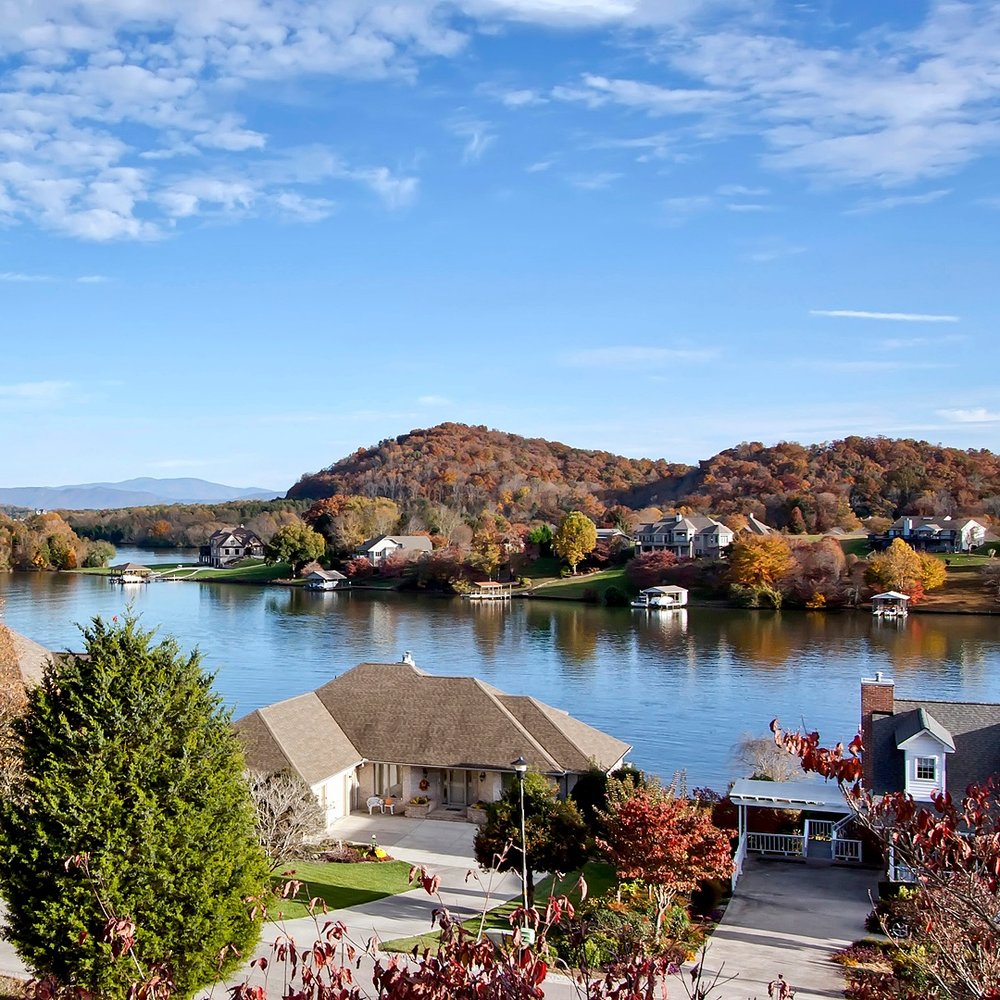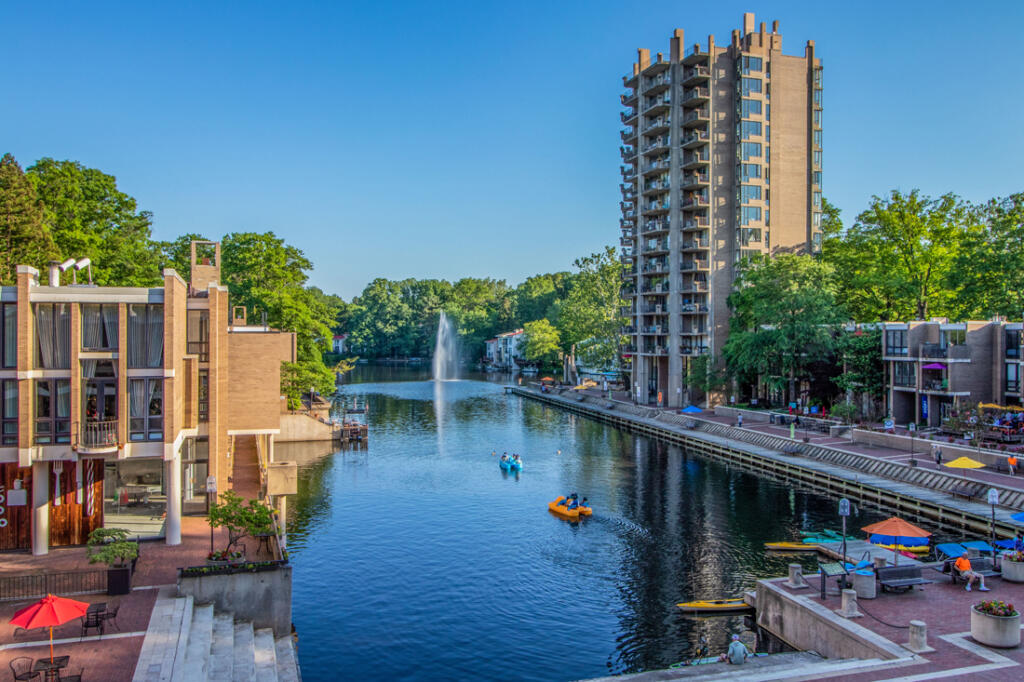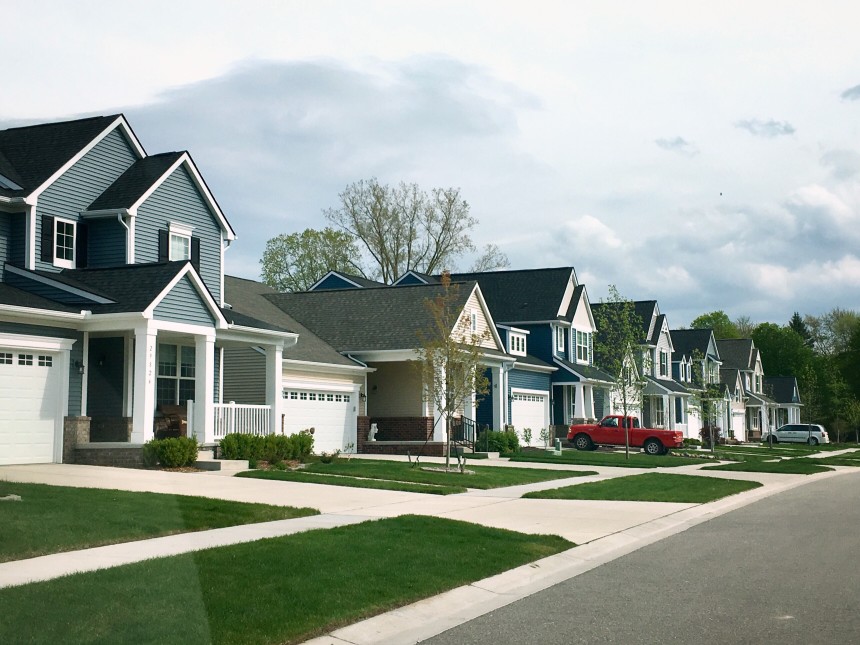
During the pandemic, the number of people buying a lake house has drastically increased. It’s easy to see why. Surrounded by more trees than people, lake homes are the perfect locations for social distancing. However, when looking to buy a lake house, there are several factors to consider.
Of course, there are the obvious deliberations — how much money to spend and which state you want to live in. But one of the most important factors is which type of lake community you’re seeking.
Some of us want to channel our inner Henry David Thoreau in a remote location, surrounded by undisturbed wilderness, a la Moosehead Lake.
Others of us (likely extroverts) prefer a community of other lake dwellers. This group is seeking a lively, close-knit group of neighbors full of potluck invitations and shopping trips. If this is you, it’s worth looking into buying a home on a community or suburban lake. These lakes are typically smaller and more removed from the hype (nothing like Lake of the Ozarks’ infamous Party Cove) with plenty of charm. If you’re considering suburban lakes in your buying decisions, check out these pros and cons first.
The List of Pros

The most practical benefit is the cost. Since community and suburban lake homes are primarily located away from the waterfront, they cost a fraction of what a lakefront property would. According to Homelight.com, waterfront homes consistently cost more than those away from the water. In 2017, the difference was $50 more per square foot, which can certainly add up.
Aside from the savings, buyers are attracted to the neighborhood vibes of suburban lakes. Unlike remotely located lakes, the focus is on the community more so than nature (although nature is undoubtedly an added benefit — for instance, Great Falls Lake, Tennessee, is known for the amazing waterfalls and white water rapids).
In addition to friendly neighbors who live a 30-second walk away, lake communities often have a unique culture that makes the neighborhood special.
Lake Geneva, Wisconsin (located on Geneva Lake) is renowned as a summer paradise. This lake town is known for shopping, an award-winning magic show, and colorful mansions along its shores.
Lake Lure, North Carolina, has a similar reputation. Close to Greenville and Spartanburg, this community lake offers a vibrant, lively culture and all the perks of lake living. This dynamic feel is emblematic of suburban lakes more broadly.
Another benefit is the proximity to amenities such as state parks, shopping centers, and restaurants. These resources and attractions are usually not available in rural lake areas.
Community lakes in the Liberty Park area of Birmingham, Alabama, are close to Vulcan Park, the Summit shopping center, and other attractive features. Similarly, Lake Anne in Virginia is located in Reston’s charming suburban community with an exciting restaurant scene, public parkland, and proximity to Washington D.C.
For those seeking a lakeside retirement community, suburban lakes often come with even more amenities. For instance, residents in communities such as White Bluff Resort, Texas, and Tellico Village, Tennessee, can join clubs, golfing groups, and countless other organizations.
Another feature that is often helpful is for those who want to be near a hospital. For instance, Lake Tansi offers proximity to the high-quality University of Tennessee medical center.
This List of Cons

Clearly, there are more pros than cons — what can we say? We love lakes! However, depending on how you envision your lake lifestyle, there are some cons to consider.
Although there is a lower cost to living on a community or suburban lake, you are typically sacrificing a waterfront view. As such, there’s a good chance you can’t look at the lake from your back porch or hop on the boat at a moment’s notice. You might also lack a boat dock for this reason, although it’s typically possible to find rental spaces at a nearby marina.
Additionally, if you’re seeking a more active environment, these lake areas may not be suitable for you. For instance, if you’re someone who wants to roll out of bed, run to the lake, and hop on a jet ski, a smaller lake may not allow for these water sports or easy access to the lake. Ultimately, if living directly on the lake is more important to you than access to surrounding amenities, a suburban or community lake may not be a great match.
Remember — the search for a lake house is all about figuring out what’s most important to you. For help on this process, reach out to a Lake Homes Realty agent with market expertise on both local and national levels.

